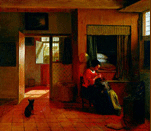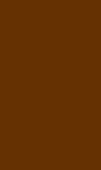










29.
Re-attending to the Early Modern Woman’s
Receipt Book: Food, Medicine, and Self-Fashioning
Organizers:
Description:
The purpose of this workshop will be to introduce the participants to the recent work that has been done by historians of science and literature in recovering and re-attending to early modern women’s medicinal and culinary recipe compilations. We will spend the first 10-15 minutes of the workshop introducing our own work on these texts and the various theoretical and methodological questions they pose about women’s writings and women’s medicinal and culinary practices. A sampling of such questions might include the following: How do these receipt books with their wealth of recipes, marginalia, and commentary, enable us to draw closer to the fleeting figure of the woman writer, writing for and from the kitchen? How do these texts both reveal and obscure the complicated status of the early modern woman practitioner of medicine? What does “medical literacy” entail in respect to these women’s recipes, and how does this term encompass the literacy of both the author and her intended audience? How are these early modern German and English women learning and transmitting their medical and culinary knowledge? How did the actual material ingredients—foods, herbs, roots, and seasonings--of the receipts inflect their practice? How do these seemingly private and domestic texts reveal the woman practitioner’s complex negotiation between the public and private spheres? How do we best read these recipe compilations, as literary texts, as rhetorical or technical writings, or as collections of specialized, medical knowledge? How do these various (and sometimes competing) theoretical lens open up (or close off) the receipt book to the early modern scholar? How do these receipt compilations enhance our understanding of renaissance practices of collecting, compiling, and organizing as reflected in other popular collections like commonplace books and poetic miscellanies? How can we situate these texts within the larger context of 16th and 17th century European women’s writings? What alternative narratives of women’s place in the history of science and literature do these receipt books allow us to draw?
After briefly outlining our research and our main questions,
we will break up the participants into small discussion groups, and each group
will be given a series of primary texts to examine and a set of particular
theoretical or methodological questions to explore. We will spend about 45-55
minutes in small group discussion, and then we will spend the last 20 minutes
together discussing any conclusions we may have drawn.
Reading:
|
|
|
||||||
|
|
 |
 |
|
||||
 |
|
 |
|
||||
|
|
|
||||||
|
|
|
||||||
 |
|
||||||
|
|
|
||||||
| |
|
||||||
 |
|
||||||
 |
|
||||||
 |
|
||||||
 |
|
||||||
|
|
|
||||||
|
|
 |
|
|
||||
 |
|
||||||
|
|
|
|
|
|
|
|
|